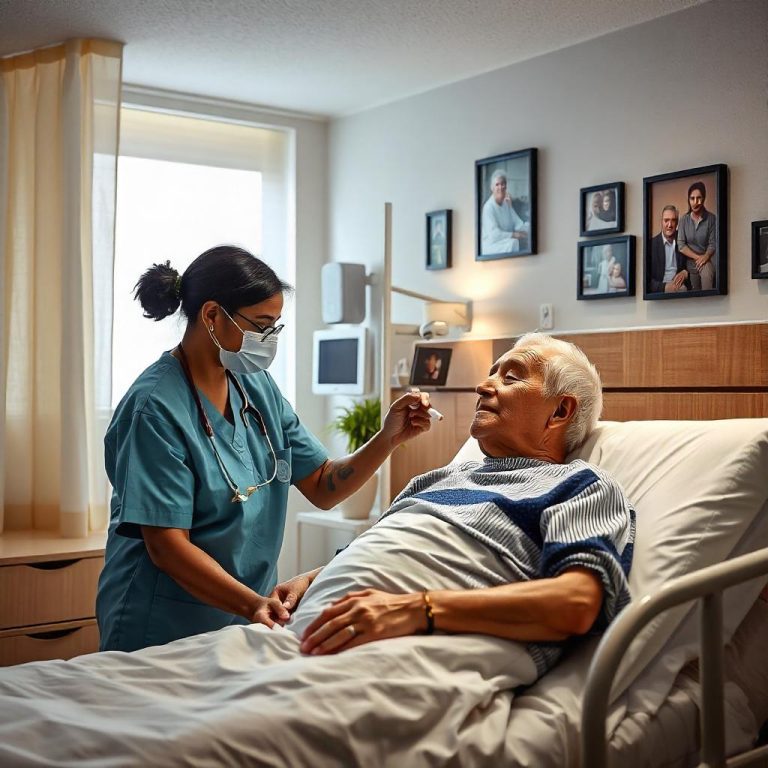As the elderly population continues to grow globally, the demand for elder care services has increased. Many elderly individuals prefer to stay in their own homes rather than move to nursing homes or assisted living facilities. Home-based elderly nursing care has become a vital service that allows seniors to receive professional medical care in the comfort and familiarity of their homes. This type of care is tailored to meet the individual’s needs, supporting their physical, emotional, and social well-being.
What is Home-Based Elderly Nursing Care?
Home-based elderly nursing care refers to healthcare services provided by licensed nurses or nursing assistants in the patient’s home. These services are designed to help older adults with chronic health conditions, rehabilitation after surgery or illness, or managing general age-related health decline. The primary goal is to provide medical care while improving the quality of life and ensuring safety and comfort in a familiar environment.
Types of Services Offered in Home-Based Elderly Nursing Care
- Personal Care Assistance Elderly individuals often require help with activities of daily living (ADLs), such as bathing, dressing, grooming, toileting, and eating. Home-based nursing care providers assist with these tasks, offering support while maintaining the dignity and comfort of the individual.
- Chronic Disease Management Many seniors live with chronic conditions such as diabetes, hypertension, arthritis, or heart disease. Home nursing services offer medical oversight, including monitoring vital signs, managing medications, and educating patients about managing their conditions. Care plans are often customized to help seniors maintain their independence and manage symptoms.
- Post-Surgical Care After surgery or hospitalization, seniors often require assistance with recovery. Home-based nursing care can help with wound care, medication management, and monitoring for complications. Nurses can also assist with physical therapy exercises and ensure proper nutrition to promote healing and prevent infections.
- Medication Management Managing multiple medications can be challenging for elderly individuals, especially those with cognitive impairments like dementia. Nurses help ensure that medications are taken correctly and on time. They can also assist with organizing medications in pillboxes, monitor for side effects, and provide reminders when it’s time to take specific medications.
- Wound Care For elderly individuals who have chronic wounds, such as ulcers, or those recovering from surgery, wound care is essential. Home-based nursing care includes cleaning, dressing, and monitoring wounds for signs of infection. Nurses can also educate family members on how to assist with wound care when the nurse isn’t present.
- Rehabilitation Assistance Many seniors require rehabilitation after an illness, stroke, or surgery. Nurses can help facilitate rehabilitation exercises, assist with physical and occupational therapy, and monitor progress to ensure that the elderly person is recovering as expected. They may also help with mobility training, balance exercises, and activities that improve strength and flexibility.
- Palliative and End-of-Life Care For elderly individuals with terminal illnesses, home-based nursing care can offer palliative support to manage pain and symptoms, providing comfort and emotional support to both the patient and family members. Nurses work with physicians to create a plan that prioritizes the patient’s comfort in their final days.
- Cognitive Support for Dementia and Alzheimer’s Patients Many seniors experience cognitive decline, and home-based nursing care is essential in helping them maintain mental health. Nurses use strategies and activities that promote cognitive engagement and safety for those with Alzheimer’s disease or other forms of dementia. They can also help manage behavioral issues associated with cognitive decline.
Benefits of Home-Based Elderly Nursing Care
- Personalized Care One of the biggest advantages of home-based nursing care is that it is personalized to the needs of the individual. Nurses create care plans based on the senior’s medical history, preferences, and living situation, ensuring that care is tailored to improve their health and well-being.
- Comfort and Familiarity Many elderly individuals feel more at ease and secure in their own homes. Receiving care at home allows them to stay in a familiar environment, surrounded by family, pets, and personal belongings. This sense of comfort can reduce stress and improve mental health.
- Increased Independence Home-based nursing care helps seniors maintain as much independence as possible. Nurses assist with daily activities and care tasks, but they also encourage seniors to participate in their care plan and maintain as much autonomy as possible. This can improve confidence and self-esteem.
- Family Support and Involvement Home-based nursing care allows family members to stay involved in the care process. Nurses provide support and education to family caregivers, helping them understand how to assist with care tasks and offering respite when necessary. This strengthens family bonds and ensures that the senior receives continuous care.
- Cost-Effective In many cases, home-based nursing care can be more affordable than a stay in a hospital or nursing facility. It eliminates the need for room and board charges, and families only pay for the care services their loved one needs. This can make high-quality care more accessible.
- Reduced Risk of Hospital Readmission Seniors receiving home-based care are less likely to experience complications from surgery or illness that lead to hospital readmission. Nurses monitor the patient’s recovery, assist with medication management, and address concerns early, preventing issues from escalating.
- Flexibility and Convenience Home-based care offers flexibility. Nurses can provide care on a schedule that fits the patient’s needs, whether that’s part-time or around-the-clock care. This convenience allows families to maintain their own schedules while ensuring that their loved one gets the support they need.
Who Can Benefit from Home-Based Elderly Nursing Care?
While home-based nursing care can benefit many elderly individuals, it is particularly helpful for those who:
- Have chronic health conditions such as diabetes, heart disease, or respiratory issues
- Are recovering from surgery, injury, or illness
- Are at risk of hospitalization or re-hospitalization
- Need assistance with activities of daily living due to physical or cognitive limitations
- Are in the advanced stages of a terminal illness and require palliative care
- Require wound care, rehabilitation, or other specialized medical services
- Have dementia or Alzheimer’s and need specialized care and cognitive support
How to Access Home-Based Elderly Nursing Care
To access home-based elderly nursing care, families typically begin by consulting with a healthcare provider. A doctor can recommend the appropriate level of care based on the elderly individual’s needs. Once the care plan is established, families can contact home care agencies that employ licensed nurses and nursing assistants to provide the necessary services. Many agencies offer a variety of care options, from hourly visits to 24/7 care, allowing families to customize the level of support.
Home-based care can also be arranged through private nurses or by using in-home care platforms, which connect caregivers with families directly. It’s important to ensure that the caregiver is properly licensed and has the necessary training, particularly if the person requires specialized care.






